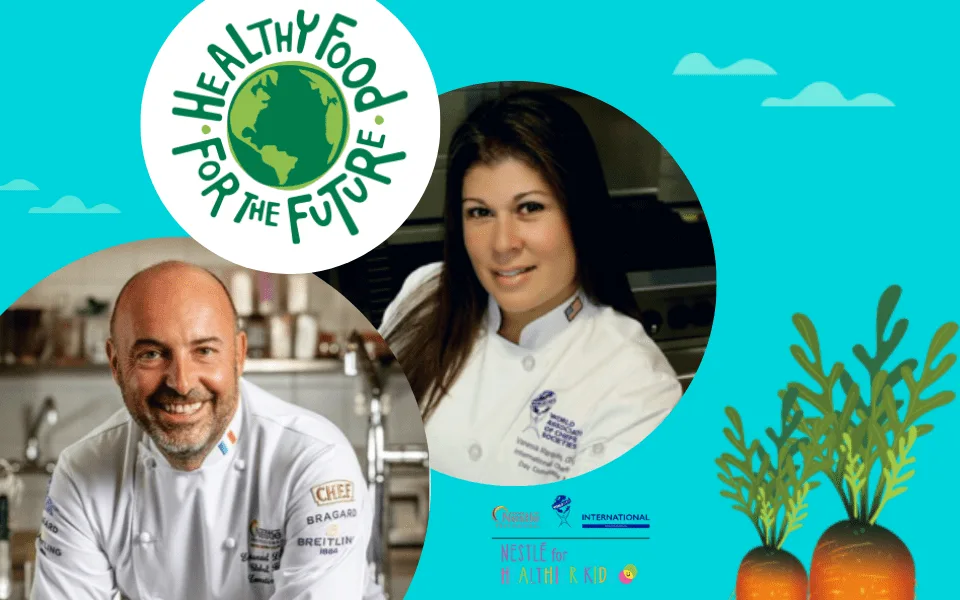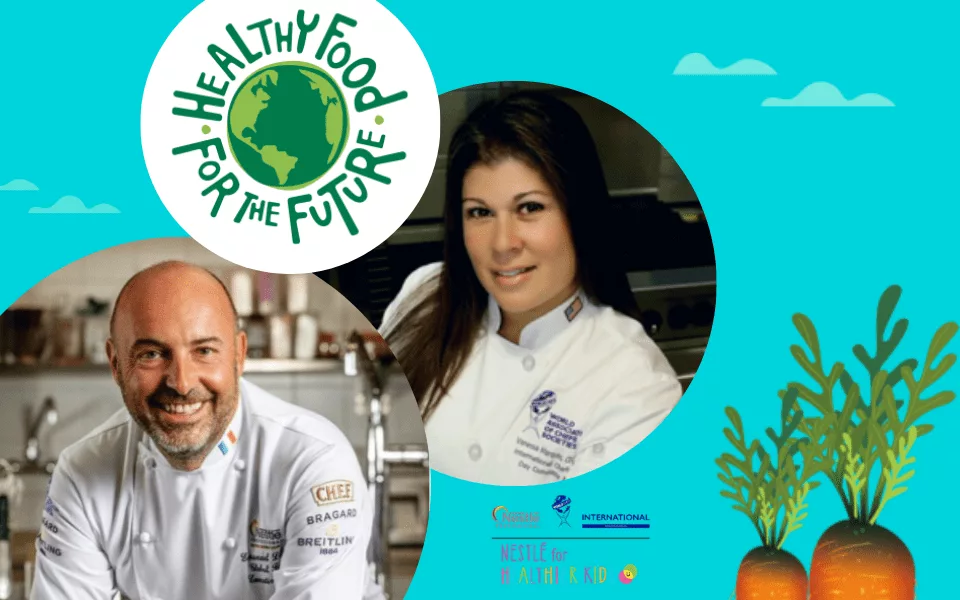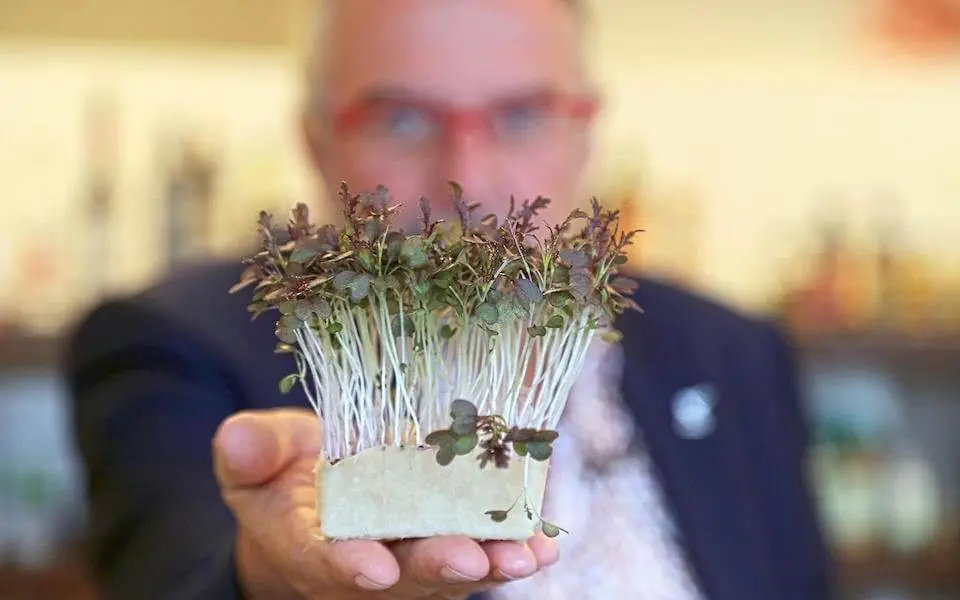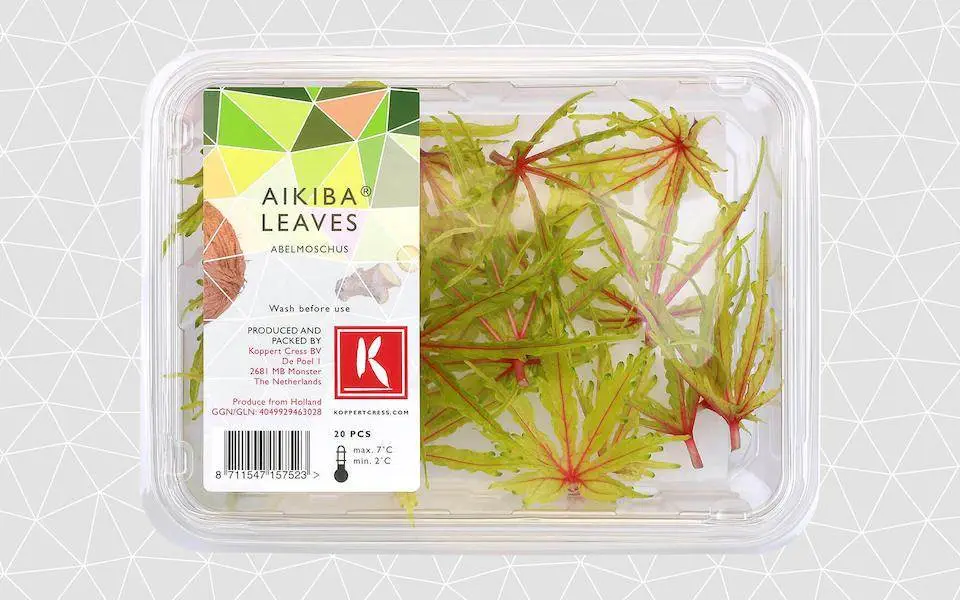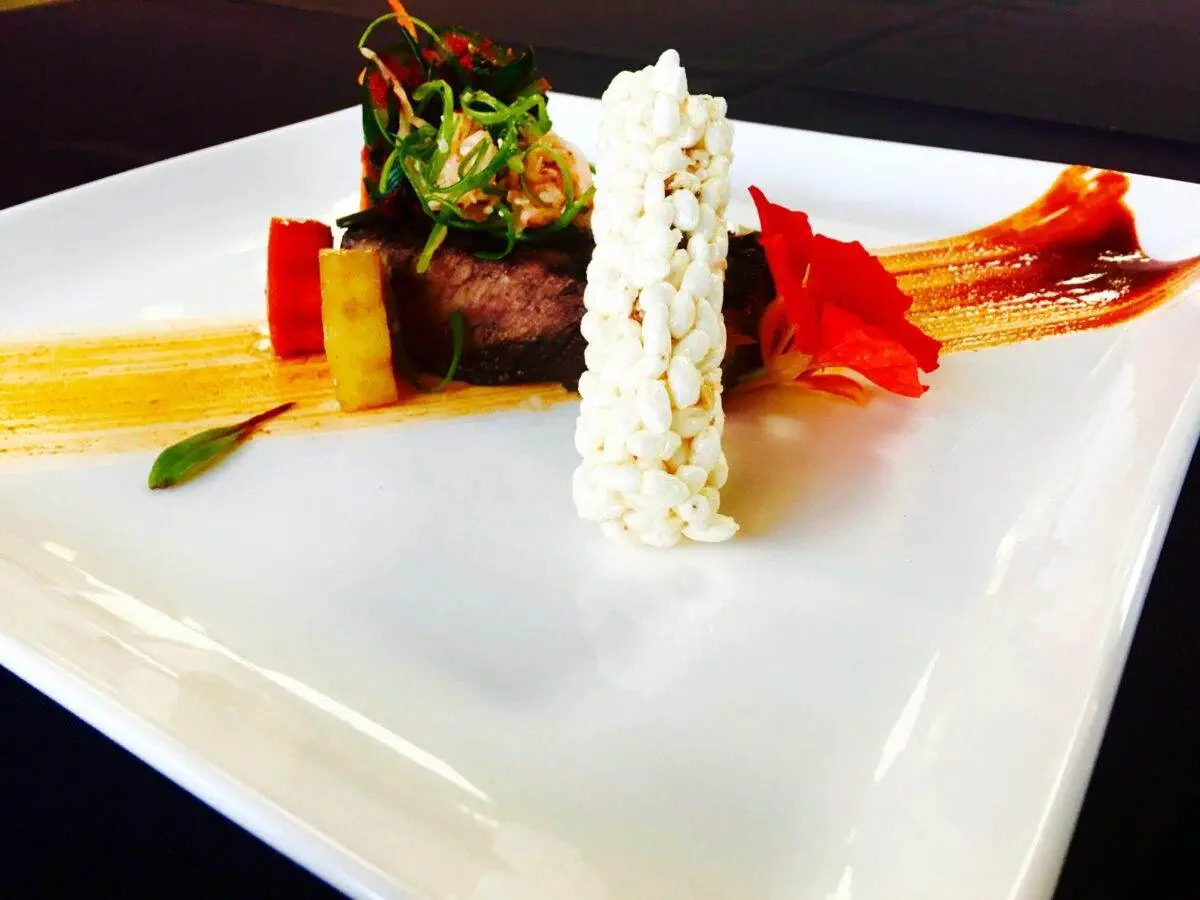Si Chef! Spanish Pre-Commis Chef Course now at Worldchefs Academy!
(Spanish translation included/ Incluye traducción al español)
PARIS, 15th of October 2020 – Worldchefs Academy is excited to announce the launch of its online Pre-Commis Chef Course and mobile app in Spanish!
Worldchefs Academy, a division of World Association of Chefs Societies (Worldchefs) developed the Pre-Commis Chef online course and mobile app in conjunction with Nestlé Professional and the Pro Gastronomia Foundation to offer culinary education for aspiring chefs that may not have the means, mobility or flexibility to attend full-time culinary school. Initially available in English, this free online course and mobile app is now available in Spanish for everyone, no matter the education or skills level.
With curriculum covering the basics of culinary professionalism, food service operations, culinary theory, food hygiene and sanitation, basic cooking and culinary nutrition, the Pre-Commis Chef Course can be followed as a complete curriculum and individual lessons can be used to compliment other existing courses or provide theoretical components to an in-service, kitchen apprenticeship.
“For the entire Worldchefs Board of Directors, it is important to make this opportunity available for aspiring chefs all around the world in as many languages as possible. The Pre-Commis Chef Course provides the opportunity for a proper, well researched and developed learning system in Culinary Arts to build careers from scratch” stated, Worldchefs President Thomas Gugler.
Participants learn through the web-based platform or via the mobile app offering an offline study mode. By connecting to the Internet when available they can download the course via the mobile app and study at any time, with or without Internet. Then they simply go back online when ready to complete the final assessment. The Pre-Commis Chef Course also links to Worldchefs Certification opportunities and is intended to be the first step on the culinary career pathway.
“In times when the foodservice industry is undergoing a significant transformation, it is even more important to support young talent to help them prepare for a professional career. As part of the global Nestlé Needs YOUth initiative, which aims to help 10 million young people to access economic opportunities around the world, Nestlé Professional’s YOCUTA program is designed to develop Young Culinary Talents, strengthening their theoretical and practical skills and preparing them for the workforce”, said Rodrigo Camacho, Nestlé Professional Business Head for the Americas.
Worldchefs Academy would like to say “MUCHAS GRACIAS!!!” to our Spanish language partner Nestlé Professional Americas and the YOCUTA program for all their support in making the course available to the Spanish-speaking communities worldwide.
Of special note are also the Worldchefs Chef Volunteers that helped with the translations and development of the Spanish language content, including:
· Rodrigo Ibáñez Rojas, President and Diana Rojas Sáez, Member of the Colegio Nacional de Chefs Profesionales de México A.C.
· Elia Nora Araujo Rodríguez, President of the Asociación de Chef de Venezuela
· Mauricio Armendaris, Worldchefs Continental Director and President of the Asociación de Chefs del Ecuador
Plans are well underway to offer the Pre-Commis Chef Course in Portuguese, Arabic, Italian, German, Nepalese and Mandarin.
About Worldchefs Academy
With about 30 million young people worldwide dropping out of school each year, the Worldchefs Academy provides one accessible way to engage those who don’t have the means, mobility or flexibility to attend full-time culinary school or undertake an apprenticeship. The program is available to anyone, no matter what background or current skill set, covering the basics of culinary professionalism, food service operations, culinary theory, food hygiene and sanitation, basic cooking and culinary nutrition. Worldchefs Academy can be downloaded on both the App Store and Google Play, or available at www.worldchefsacademy.com.
About YOCUTA
Launched in 2015 in Latin America by Nestlé Professional, the YOCUTA (Young Culinary Talents) has already helped over 3,000 young people, entering the culinary or foodservice industry. As part of Nestlé’s broader Nestlé Needs YOUth Initiative, whose ambition is to help ten million young people worldwide access economic opportunities by 2030, YOCUTA aims to develop young professionals building a wide range of theoretical and practical skills required to pursue a successful career in the culinary industry. The Worldchefs Academy is part of the YOCUTA Program, complementing the technical and operational culinary skills education for future foodservice professionals.
About Nestlé Professional www.nestleprofessional.com
Nestlé Professional is the global leader in branded hot and cold beverage and food solutions. The team of Nestlé Professional is passionate about serving the out of home industry and “Making More Possible” for their foodservice partners by leveraging a unique global reach, bringing knowledge and customized solutions to help customers, delight their consumers.
About Worldchefs www.worldchefs.org
The World Association of Chefs’ Societies, known as Worldchefs, is a dynamic global network with over 110 chef associations worldwide. A leading voice in hospitality, Worldchefs carries 91 years of history since its founding at the Sorbonne by the venerable Auguste Escoffier. Representing a mobilized international membership of culinary professionals, Worldchefs is committed to advancing the profession and leveraging the influence of the chef jacket for the betterment of the industry and humanity at large.
For more information on Worldchefs Academy, contact: info@worldchefsacademy.com


En Español
¡Si Chef! ¡Curso de Pre-Commis Chef en español ahora en Worldchefs Academy!
PARIS 15 de octubre de 2020
¡Worldchefs Academy se complace en anunciar el lanzamiento de su Curso Pre-Commis Chef en línea y su aplicación móvil en español!
Worldchefs Academy, una división de la Asociación Mundial de Sociedades de Chefs (Worldchefs), desarrolló el curso en línea Pre-Commis Chef y la aplicación móvil en conjunto con Nestlé Professional y la Fundación Pro Gastronomía para ofrecer educación culinaria para aspirantes a chefs que no tengan los medios, movilidad o flexibilidad para asistir a una escuela de gastronomía de tiempo completo. Inicialmente disponible en inglés, este curso en línea gratuito y su aplicación móvil ahora está disponible en español para todos, sin importar el nivel de educación o habilidades.
Con un plan de estudios que cubre los conceptos básicos del profesionalismo culinario, operaciones del servicio de alimentos, teoría culinaria, sanidad e higiene de los alimentos, cocina básica y nutrición, el Curso de Pre-Commis Chef se puede seguir como un plan de estudios completo o como lecciones individuales para complementar otros cursos existentes o bién, para proporcionar la parte téorica al personal de cocina en servicio.
“Para toda la Junta Directiva de Worldchefs, es importante que esta oportunidad esté a disposición de los aspirantes a chef de todo el mundo en tantos idiomas como sea posible. El Curso de Pre-Commis Chef brinda un sistema de aprendizaje adecuado, bien estructurado y desarrollado en Artes Culinarias para construir carreras desde cero”, declaró Thomas Gugler, presidente de Worldchefs.
Los participantes aprenden a través de la plataforma web o mediante la aplicación móvil que ofrece la posibilidad de descargar el curso y estudiar en cualquier momento, con o sin Internet. Luego, simplemente vuelven a conectarse cuando están listos para completar la evaluación final. El curso de Pre-Commis Chef también se vincula con las oportunidades de certificación de Worldchefs y está diseñado para ser el primer paso en la carrera profesional culinaria.
“En estos momentos en que la industria de servicios de alimentos está experimentando una transformación significativa, es aún más importante apoyar a los jóvenes talentos a prepararse para una carrera profesional. Como parte de la iniciativa global Nestlé Needs YOUth, que tiene como objetivo ayudar a 10 millones de jóvenes a acceder a oportunidades económicas en todo el mundo, el programa YOCUTA de Nestlé Professional está diseñado para apoyar el desarrollo de jóvenes talentos culinarios, fortaleciendo sus habilidades teóricas y prácticas y preparándolos para su futura incorporación al mercado laboral.”, dijo Rodrigo Camacho, Director Comercial Profesional de Nestlé para las Américas.
Worldchefs Academy quiere decir ¡MUCHAS GRACIAS! a nuestro socio Nestlé Professional Américas y al programa YOCUTA por todo su apoyo para que el curso esté disponible para los países de habla hispana en todo el mundo.
De igual forma, un agradecimiento especial para los chefs voluntarios de Worldchefs que colaboraron con las traducciones y el desarrollo del contenido en español, que incluyen:
· Rodrigo Ibáñez y Diana Rojas Sáez, Presidente y Miembro del Colegio Nacional de Chefs Profesionales de México A.C.
· Elia Nora Araujo Rodríguez, Presidenta de la Asociación de Chef de Venezuela
· Mauricio Armendaris, Director Continental de Worldchefs y Presidente de la Asociación de Chefs del Ecuador
Próximamente, el curso de Pre-Commis Chef estará disponible en portugués, árabe, italiano, alemán, nepalí y mandarín.
Acerca de Worldchefs Academy
Con aproximadamente 30 millones de jóvenes en todo el mundo que abandonan la escuela cada año, Worldchefs Academy proporciona una forma accesible de involucrar a aquellos que no tienen los medios, la movilidad o la flexibilidad para asistir a una escuela de gastronomía de tiempo completo o iniciar su aprendizaje. El programa está disponible para cualquier persona, sin importar sus conocimientos o habilidades actuales, y cubre los conceptos básicos de profesionalismo culinario, operaciones de servicio de alimentos, teoría culinaria, sanidad e higiene de los alimentos, cocina básica y nutrición. Worldchefs Academy se puede descargar tanto en la App Store como en Google Play o se puede encontrar en www.worldchefsacademy.com.
Sobre YOCUTA
Lanzado en 2015 en América Latina por Nestlé Professional, el YOCUTA (Young Culinary Talents o Jóvenes Talentos Culinarios, en español) ya ha ayudado a más de 3000 jóvenes a ingresar a la industria de alimentos y bebidas. Como parte de la más amplia iniciativa Nestlé Needs YOUth, de Nestlé, cuya meta es ayudar a diez millones de jóvenes en todo el mundo a acceder a oportunidades económicas para 2030, YOCUTA tiene como objetivo impulsar a jóvenes profesionales que desarrollen una amplia gama de habilidades teóricas y prácticas necesarias para seguir una carrera exitosa en la industria. Worldchefs Academy es parte del Programa YOCUTA, que complementa la educación en habilidades culinarias técnicas y operativas para los futuros profesionales del servicio de alimentos.
Acerca de Nestlé Professional www.nestleprofessional.com
Nestlé Professional es el líder mundial en soluciones de alimentos y bebidas frías y calientes. El equipo de Nestlé Professional es un apasionado de servir a la industria fuera del hogar y “Hacer más posible” para sus socios de servicios de alimentos al aprovechar un alcance global único, brindando conocimiento y soluciones personalizadas para ayudar a los clientes a deleitar a sus consumidores.
Acerca de Worldchefs www.worldchefs.org
La Asociación Mundial de Sociedades de Chefs, conocida como Worldchefs, es una red global dinámica con más de 110 asociaciones de chefs en todo el mundo. Una voz líder en la hospitalidad, Worldchefs lleva 91 años de historia desde su fundación en la Sorbona por el venerable Auguste Escoffier. Representando una dinámica sociedad internacional de profesionales culinarios, Worldchefs se compromete a promover la profesión y aprovechar la influencia de la chaqueta de chef para el mejoramiento de la industria y la humanidad en general.
Para obtener más información sobre Worldchefs Academy, contacte a: info@worldchefsacademy.com
ABOUT WORLDCHEFS
The World Association of Chefs’ Societies, known as Worldchefs, is a dynamic global network of 110 chef associations worldwide. A leading voice in the hospitality industry, Worldchefs carries 91 years of history since its founding at the Sorbonne by the venerable Auguste Escoffier. Representing a mobilized international membership of culinary professionals, Worldchefs is committed to advancing the profession and leveraging the influence of the chef jacket for the betterment of the industry and humanity at large.
Worldchefs is dedicated to raising culinary standards and social awareness through these core focus areas:
Education – Worldchefs offers support for education and professional development through the landmark Worldchefs Academy online training program, a diverse network of Worldchefs Education Partners and curriculums, and the world’s first Global Hospitality Certification recognizing on-the-job skills in hospitality;
Networking – Worldchefs connects culinary professionals around the world through their online community platform and provides a gateway for industry networking opportunities through endorsed events and the biennial Worldchefs Congress & Expo;
Competition – Worldchefs sets global standards for competition rules, provides Competition Seminars and assurance of Worldchefs Certified Judges, and operates the prestigious Global Chefs Challenge;
Humanitarianism & Sustainability – Worldchefs Feed the Planet and World Chefs Without Borders programs relieve food poverty, deliver crisis support, and promote sustainability across the globe.
For more information about Worldchefs, visit us at www.worldchefs.org.
